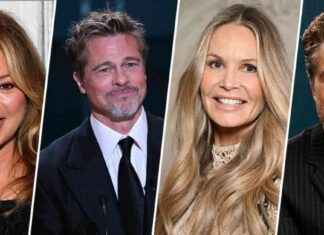He was a poet and boxer, and also championed racial justice. He was one of the most prominent leaders of the Chicano civil right movement in the 1960s and 1970s.
Recently, CBS4 interviewed Rudy Gonzales to learn more about the impact of the movement in Denver on the country.
Gonzales stated that “this little city, this tiny space really set the agenda and the tone, and it manifested this spirit of the Chicano Movement across this country.”
Gonzales was the founder of Crusade for Justice, a civil rights organization. He is also the name of the Rodolfo “Corky” Gonzales Branch Library at Denver Public Library.
Roxie Vizcarra illustrated the Google Doodle. The following information is available about the Google Doodle:
Today’s slideshow Doodle is illustrated by Roxie Vizcarra (Brooklyn, NY) and celebrates Rodolfo Gonzales, U.S. Chicano educator. He was a champion boxer and one of the most important leaders in Chicano Civil Rights Movement. On this day in 1970, the Escuela Tlatelolco Centro de Estudios, founded by Corky and his family, opened its doors as the first private school in United States history with a focus on Chicano/Mexican-American cultural studies. Today’s Doodle takes you on a journey through Corky’s life, featuring slides from Gonzales’ 1967 epic poem (“Yo Soy Joaquin”) and the rallying cry for the Chicano cultural movement “I Am Joaquin”.
Rodolfo Gonzales, affectionately known as “Corky” because of his bubbly personality, was born June 18, 1928 in an east-side barrio in Denver, Colorado. Corky was a sugar beet farmer with his father, a Mexican immigrant from Mexico, throughout his childhood. He taught him pride in his heritage.
Corky was just 16 when he graduated high school. Corky saved money for college, but couldn’t afford tuition after one year. He decided to use his athleticism and become an amateur boxer. Corky became a professional featherweight boxer at age 19. He was ranked among the top three featherweight boxers worldwide at the height of his career. However, discriminatory organizers denied him the opportunity to fight for the title. He retired from boxing in 1955 as a local superstar and decided to use his influence and platform to promote racial equality across the country.
Corky, a Chicano civil rights leader, founded Crusade for Justice in 1966. Corky organized protests across the U.S., marching with civil rights leaders like Cesar Chavez, Martin Luther King, Jr. Corky organized the first National Chicano Youth Liberation Conference in 1969. This conference inspired the next generation to be proud of their heritage and participate in the cultural revolution.
Corky’s creativity reflected his activism, and honored his Chicano pride through his entire career. His most famous poem, “Yo Soy Joaquin”, tells the story about a man who travels through time to meet multiple Spanish leaders, Indigenous leaders of Aztlan (referenced in the Aztec pyramid on slide 4 of the Doodle), and finally, a Chicano living in the United States.
The Chicano Movement was a catalyst for many positive changes in the U.S. for Latino/a and Mexican communities. These include the creation of bilingual and multilingual socioeconomic programs, improving working conditions for migrant workers, as well as increasing representation of Mexican-Americans/as in U.S. politics, education, and government. All these are foundational elements of the ongoing fight for justice, equality, and fairness.
Corky, here’s to you! !Mil gracias, Corky!






